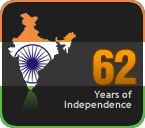One must be careful of words. Imprecise creatures they are, and often do they convey a false sense of agreement with intent and experience. If we willing to scrape below the surface, what will we get when the meaning of "void" is probed? At a first, obvious level, it points to the absence of some physical entity, be it an interstitial defect in a crystal, the loss of some item or the death of a living being. Of course, the deeper the personal connection with the entity, the more acute the perception of the void. It seems ironic; void, a synonym for something that isn't, needs for its meaning, the a-priori existence of something that was (for instance, would you feel a void at the passing of a person who you didn't know existed?). At this point, we're in a fix. If we suspect that there is any deeper meaning to void-ness, we will have to abandon the physical domain. No sooner have we done this, we are clueless in a pathless, abstract, Platonic world. So, is our quest entirely hopeless? Probably, but here is an illuminating analogy nonetheless. If we are to believe Hubble and our present knowledge of the origin and expansion of the universe, all of what we know exists was a single point at the very beginning of the creation of the universe. That single point, infinitely small and weightless "contained" all of existence (that was yet to "be"). Shunya or zero, is also a concept that has literally no measure (yes, one does run into the problem of defining something in terms of itself!). One might argue that it is a stretch of the word (however, words are imprecise, right?), but "void", at a deeper level can allude to this concept of no-measure or shunya. It should now be of little surprise that the concept of a point is Platonic (and hence non-physical).




1 comment:
Now this made me think about anti-matter
Post a Comment